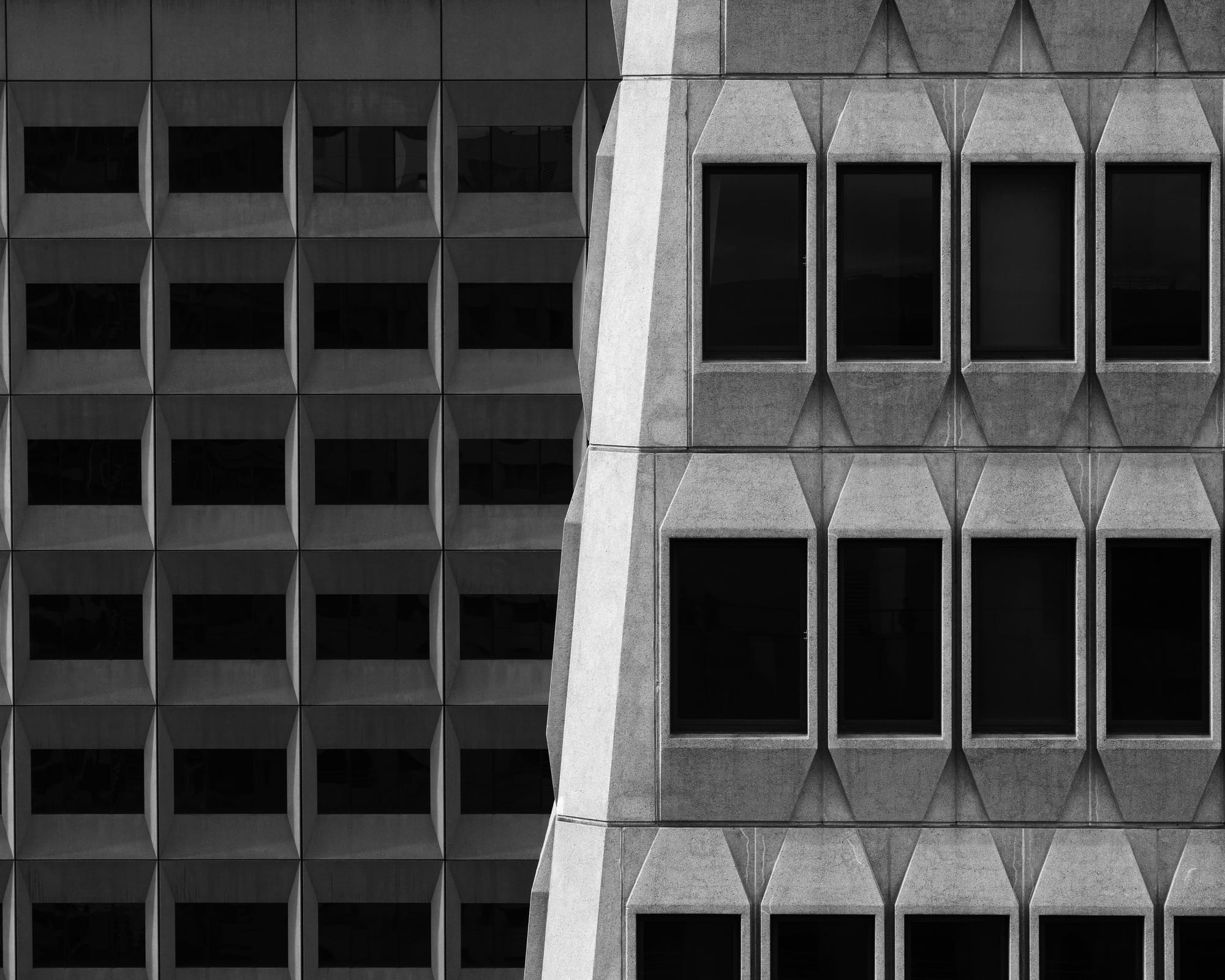Longform: A Spectre is Haunting Electronic Music
Marx would surely have loved the club, but would have been aghast at the economic conditions therein.

After a two-year run, Aslice, a revenue-sharing platform focused on electronic music, closed its doors in September 2024. Founded in 2022 by Zak Khutoretsky, better known as Minneapolis techno luminary DVS1, the platform was designed to help correct the longstanding income imbalance between professional DJs and the artists and producers whose tracks they play in clubs and at festivals.
In concept and in practice, Aslice was the definition of a moonshot: The platform was entirely dependent on self-reporting, asking professional DJs to share earnings with artists and producers of their own volition—money out of their own pocket. In that sense, its failure is hardly surprising; that it got off the ground at all is an accomplishment unto itself. Ultimately, Aslice's demise reveals how the business of electronic music is riven by class, as the highest earners' share of the pie grows at a dizzying rate while the hoi polloi below them earn less—or just nothing at all. It's also a stark reminder that, despite all our lofty talk of underground culture and community, financial success for electronic musicians is overwhelmingly a function of the sale of alcohol, a dependency that has accelerated dramatically as the scene becomes increasingly commoditized and corporatized.

In a nutshell, Aslice allowed professional DJs to share a portion of the performance fees they earned with the musicians and artists whose music they played during a gig. Participating DJs would upload tracks-played data from Rekordbox, Traktor, or Serato into Aslice's proprietary software, which would then match them against public and private metadata to ensure that payouts went to the correct artists and producers. (DJs who played vinyl had to input the records they played by hand, obviously.) DJs would then decide how much of their performance fee to share with producers; Aslice suggested 5% as a baseline. From each payout, the platform would collect 15% to fund and maintain its operations.
In the context of techno, house, and underground club music at large, the relationship between DJs and producers is symbiotic—or parasitic, depending on who you ask. Neither can exist without the other, but that relationship is more lopsided and tempestuous than ever—because a handful of professional DJs are earning more than ever.
In short, it is far more lucrative to be a professional DJ, and earn a living playing other artists' music to a crowd, than it is to produce the tracks those DJs play out. Within the past 20 years, American DJ fees have skyrocketed (the lions’ share of which goes to the very topmost tier of DJs, to be clear), driven by an ouroboros of social media visibility and ever-bigger festivals and multi-room clubs. Meanwhile, income for producers and artists has cratered, decimated by the exploitative economics of streaming and the steady decline of music as a saleable commodity.

Alongside the announcement of their closure, Aslice published a long and detailed report, titled "A Slice of Fairness," that paints a bleak picture of the state of the union in club music. It's full of fascinating tidbits—like the fact that the top 10 DJs on the platform were responsible for a whopping 65% of all earnings shared. The report is inside-baseball material without a doubt, but if you have even a passing interest in the business end of electronic music, it's worth reading.
From top to bottom, the report depicts a brazenly unjust business—hardly news to anyone involved with music in a professional capacity, but it's a jarring read nonetheless. Describing the state of affairs for up-and-coming artists and producers—unsustainable, in a word—the report veers toward a remarkably socialist rhetoric, citing notions of fairness, uncompensated labor, and deep-seated, abiding inequality. Today more than ever, a spectre is haunting electronic music: Marx would surely have loved the club, but would have been aghast at the economic conditions therein.
The report tries in earnest to identify the root causes of this musical doom loop, but misses the forest for the trees. Much blame is laid at the feet of performance rights organizations like ASCAP or BMI, even though they predate electronic music performers by generations and operate in drastically different contexts—PROs weren't built to serve electronic musicians, and hoping they'll pivot to do so is a fools' errand. "Industry cynicism" is another scapegoat, but again, asking earners to share their income with others out of their own goodwill is always an iffy proposition.
What the report failed to do is connect the dots between the stratospheric fees paid to the highest tier of professional DJs, many of whom began in what we once called "the underground," and alcohol sales at mega-clubs and festivals—which run into five-, six-, or seven-figure tallies at scale.

Aslice's highest-profile supporter was Richie Hawtin, the Canadian minimal techno pioneer who metamorphosed into an Ibiza fixture and became a sake entrepreneur along the way. When Aslice closed, Hawtin shared a heartfelt video on Instagram lamenting the lack of buy-in from other high-profile DJs. Tellingly, he also shared his total contributions to the platform: €88,950 over a rough two-year period. Using Aslice's suggested 5% contribution baseline, we can estimate that Hawtin's income from DJing, across those two-ish years, was €1,779,000. (I suspect his actual DJ income was higher than that, but that's beside the point.)
I'm not interested in whether Hawtin "earned" or "deserved" that number—Hawtin has certainly paid his dues, and contributed to the culture, more than maybe anyone else in his DJ income bracket. What does interest me is where that income comes from and how it sustains itself.
To be explicit, Hawtin's income derives from the sale of alcohol. Hawtin's DJ fees are north of $10,000 per night (I know for a fact they're well higher than that in the U.S.) because clubs that book him can safely expect thousands of fans will come to see him, and each of those clubgoers will probably leave with bar tabs of $40-$80. If we assume 1200 clubgoers each spend $50 at the bar, that means the club will ring $60,000 at the end of the night. In that light, paying Hawtin $20,000 (plus flights, hotel, ground travel, meal buyout, agency booking fee, and hospitality rider) to DJ for 3-4 hours makes great business sense. It is this market logic, revolving around the sale of alcohol, that fuels financial success for everyone who's anyone in the electronic music business.
Alcohol conglomerates know this market logic well, and are doing their part to keep those bar tabs as large as possible: for example, Jägermeister pays for advertorials in Resident Advisor and funds grants to "enact positive change within nightlife"; Ballantine's has sponsored Boiler Room broadcasts for over 10 years running. To state the obvious, these are not altruistic acts but calculated business decisions designed to inculcate new generations of club-going drinkers.

As Hawtin himself mentions in his video post, back in the '90s, so-called "underground" producers might have sold 5—or 10—or even 15,000 copies of a good record. That made for comfortable income, particularly when average monthly rent was in the hundreds of dollars. These days, those numbers are unheard of. For mid-tier artists, selling 300 copies is a huge success, and 1,000+ would be practically generational. In other words, for most artists, music sales are effectively nonexistent as meaningful sources of income. There is simply no other choice for electronic musicians than to accede to the logic of alcohol sales if they wish to make a living; and in turn, the artists who are most likely to ascend the booking ladder at clubs and festivals are those that reliably deliver heavy-drinking crowds.
The market logic of alcohol sales even manifests itself in artists and DJs themselves—take a look at the meteoric rise of white-boy party-bro beer-crush tech-house, artists like John Summit or Fisher, to witness the phenomenon occurring in real time. We've strayed far from Drexciyan territory, haven't we?
In the end, Aslice should be applauded for what they attempted to do, even if they failed. Specifically because they failed—because their failure highlights how unwell the business of electronic music has become. Something needs to change, but what that is I couldn't tell you. May we continue to work toward a more just and equal ecosystem in the meantime.
